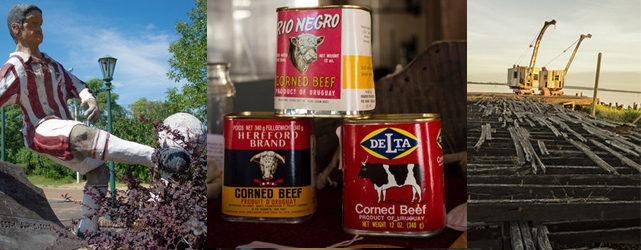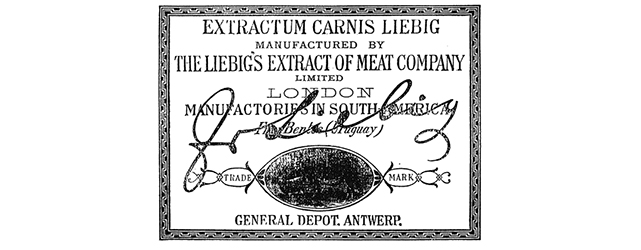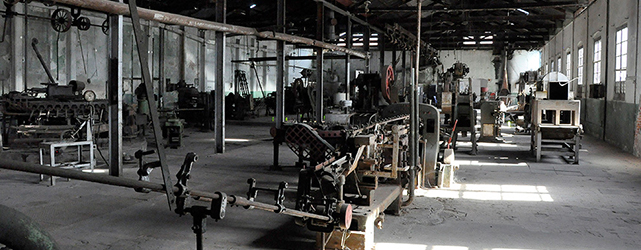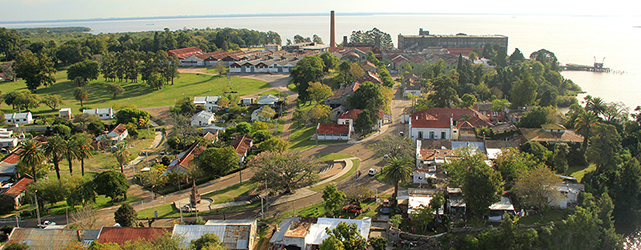So Uruguay who likes meat

What links a typhoid outbreak in Aberdeen in 1964, a staple ration of the British army for over 50 years, three century-old football clubs and a UNESCO heritage site?
On the edge of the Uruguay river about a hundred miles north of Buenos Aires in Western Uruguay sits the city of Fray Bentos and the decaying remains of one of the largest industrial meat processing plants in Latin America.


The product proved a great success; sold under the name Lemco, it set the model for industrial food production and distribution and helped bring the industrial revolution to Latin America. When Von Liebig died in 1847, Giebert expanded the business, building a large ‘Casa Grande‘ in the grounds of factory and by taking advantage of the recent developments in canning technology he was able to produce corned beef on an unimaginable scale. It was reported that an animal was processed every five minutes. The generals of the American Civil War saw the usefulness of an easy to use, nutritious food which was both easy to transport, and had a long shelf life. So did the British army which used the Fray Bentos corned beef as a daily ration for its soldiers during both world wars. In 1924, two Liverpudlian pioneers in refrigeration; William and Edmund Vestey bought the meat processing plant and started shipping frozen meat products using the same distribution model. Liebig’s Extract of Meat Company bought some buildings on the banks of the Thames in London and Lemco was replaced by an even-cheaper-to-produce extract with the help of Sir Henry Roscoe; today we know it as the humble Oxo cube.

The company and the meat processing plant was huge part of the Uruguayan economy and the cattle sector remains so. The factory brought thousands of Europeans immigrants over and during their free time these employees played football. The teams were all founded around the turn of the century and I imagine were eager to play against the also recently founded Buenos Aires football club to the south. The small town that housed the workers within the site of the factory also had a school and a hospital.

In 1964 an outbreak of typhoid in Aberdeen, Scotland was traced back to a can of Fray Bentos corned beef which had contaminated the meat slicing machine at the grocery shop of William Low. Thankfully there were no fatalities from the outbreak but the damage was irreparable. The reputation of Fray Bentos started to dwindle and with the UK’s entry into the European Union trade was affected and the factory ceased production in 1979, six years after the Uruguayan coup d’état.
In 2005, a museum dedicated to the Industrial Revolution in Latin America opened in the factory and earlier this year UNESCO awarded it Heritage Site status due to the juicy chunk of history of global meat production and distribution within its walls.
Tailor-made holidays
Flexible, custom-made holidays to Latin America created to match your exact requirements: our tailor-made itineraries are as unique as the clients for whom they are designed.
Design my tripPapagaio
Your edit for Latin American inspiration
Our exciting range of articles on Latin America explore everything from iconic destinations and lesser-known cultural gems to delicious traditional recipes. You’ll also find exclusive travel tips, first-hand client reviews and the chance to get your personal questions answered by our travel experts.
View Extraordinary Inspiration






































